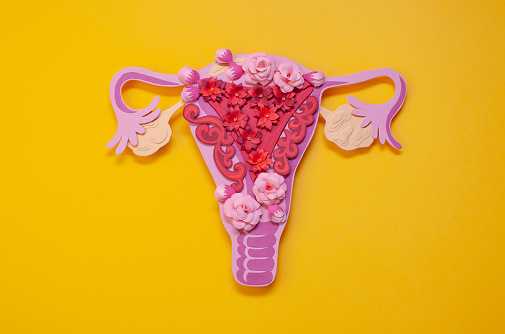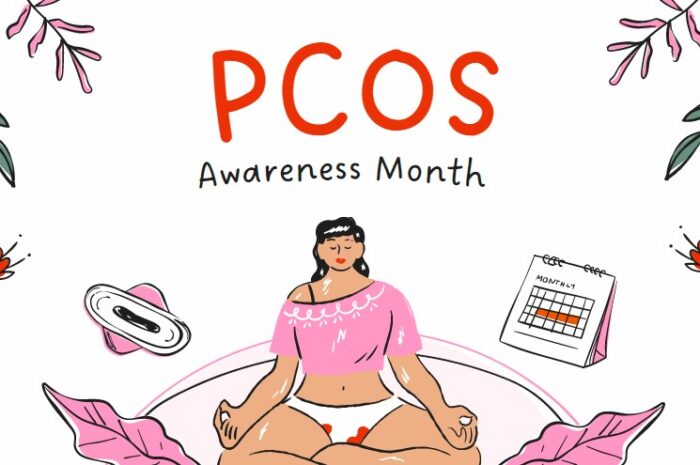
There Is Nothing Superficial About Endometriosis
Nikita Aashi Chadha
I have stage one Endometriosis. When I first saw the photos that were taken during surgery, I was genuinely shocked to see what it looked like. Small, red lesions on my insides. It looked like acne. I wondered how something so small, so minimal, could have had such an impact on my daily life. I was diagnosed in November 2018 via a laparoscopy. They found Endometriosis on my uterosacral ligaments, where the lower back meets the uterus. It was excised, a Mirena coil was fitted, and I was given a follow-up appointment with the gynaecologist for six months time.
I was only pain-free until March 2019, before my symptoms and high levels of pain re-appeared. I didn’t understand what was happening or understand enough about this illness that was ravaging my mental health, my relationships and my way of life. I’d thought that surgery would cure my problems, that it would be at least a year until it all returned. I was wrong. I went back to my gynaecologist and I explained that I was still experiencing pain and that it felt like Endometriosis. Having just performed the surgery four months ago, she assured me that it wasn’t the return of Endometriosis, but was perhaps another medical issue that needed attention. She sent me for internal ultrasounds and scans to assess if my kidneys had been compromised. During the scan, I was told that I have mild signs of Adenomyosis. I asked if the pain I was experiencing within the uterus, vagina, and at climax could be explained by this disease. I wasn’t given a concrete answer. They couldn’t find the cause of the pain. I was dismissed from the specialists’ office, and I was sent back to my GP for musculoskeletal assessments.
I knew that it wasn’t a musculoskeletal problem. I knew at that point it was Endometriosis, but I had no fight left in me. I returned to the GP, depressed, broken, asking them for answers to questions that I knew they couldn’t solve. I was given physiotherapy, diagnosed with sciatica and sent for MRI and other scans, which also turned up nothing, just as I knew they would. A year later, in February 2020, I was finally referred back to a gynaecologist. It was a battle and a half to be taken seriously, and I was surprised at the amount of medical gaslighting, knowing that I was already diagnosed with this invisible illness. He ordered another set of scans, this time a pelvic MRI. He reviewed the results and told me that I didn’t have Adenomyosis, but that I was clearly exhibiting signs of Endometriosis given that the sciatica was cyclical, and flared heavily around changes in my menstrual cycle. He didn’t understand why the other doctors had been so dismissive, knowing that I’d been diagnosed not even a year and a half before. I was exhausted at this point. Every doctor had a different opinion and varying levels of interest in validating my pain, and my experiences. It’s hard enough, living with a condition that can affect so many different parts of your body and how it functions, without also fighting to be believed by someone who has taken an oath to provide you with the best medical care they can and to do you no harm.
I’ve had some great doctors, yes, but also many that have caused me harm. It may not be physical, but I still carry the scars that come with expressing, or detailing your lived experience and not being seen and heard, even as you scream for visibility. The gynaecologist I was seeing earlier this year, showed me the surgery photos that were taken before and after, and how the Endometriosis cells were not fully excised. He couldn’t tell me why, but he suggested that as they were near my bowel and bladder, the last gynaecologist may have left them behind as that part of the surgery is more intricate, and carries certain risks. I spoke to Endometriosis UK, who told me that I was entitled to be seen by a specialist, and not a standard gynae. I took that advice and asked my GP to refer me to an accredited Endometriosis Centre. Then corona appeared and reared its ugly head, causing a host of delays or full-on restrictions to treatments across the country. I couldn’t help but be disappointed. I’d already fought for over a year to get back to a gynaecologist. I was referred, in June this year, and was finally accepted by a specialist centre, with my first appointment in October.
I hate attending these appointments. I hate what happens to me when I enter the doctors’ office. All the memories of my Endo journey flood my mind, and I can’t think straight or get through the first 2 minutes without crying uncontrollably. Women are treated as hysterical beings, especially in a medical setting, and I know that displaying emotions, so openly and violently, will not help my case. It’s not an active choice, but a very specific trigger that I can’t control. I was called into the centre for a set of internal ultrasounds, and again, all I could feel was dread and anxiety. As I have stage 1 Endo, it can’t be detected on any ultrasounds or MRIs. My scans tend to come up clear, and the professional doing the scan always acts as if this is a good thing. So do my friends and family. It isn’t a good thing. It’s just the forefront for more medical gaslighting. When describing my Endometriosis to the doctor, she told me that stage 1 endometriosis is called superficial Endometriosis.
I wanted to note here that I’ve been unable to work due to worsening symptoms, since May 2020 until the present day. My life has been turned upside down since diagnosis, but even more so, again this year. Sometimes I can’t speak, I can’t stand, can’t sleep, can’t eat, can’t think of anything else but this pain. Sometimes I have ideation and thoughts about ending my own life because the pain is so severe, that I can’t see any other way out of this journey that I find myself on. Once she said the word superficial, something happened to me. It was as if the word caused my mind to go blank. The doctor was talking to me, but all I could hear was the word superficial, bouncing around between my ears, mocking me. I didn’t want the scans to be done, but I agreed, because at this stage, what other choice do I have, but to conform. The internal ultrasounds are painful for me. I have a high cervix, which makes the entire process awkward and uncomfortable. The equipment used, that has to be inserted into the vagina, has to be held in a certain way to ensure clear images can be captured. Even a speculum exam is painful for me (I had a smear done last week, and it was followed by a two-day flare). Before this diagnosis, and this illness appeared in my life, I was a very sexually active person. That isn’t the case anymore. Who I am, and what I’m about has changed exponentially. Sometimes I don’t recognise myself in the mirror.
Even throughout the scans, all I could think of, all my mind could focus on, was the word that had been said during the examination: superficial. At one point, I disassociated completely (I’m highly dissociative by nature, I have been since I was about 11 years old) and I couldn’t remember what the word was. The doctor was talking to me, and I found myself not saying anything back to her, not until I could recall the word again. I remembered it, ten minutes later, confused, about how I could ever have forgotten it in the first place, given that as soon as it was said, the bodily anxiety symptoms began. Shaky palms, sweating profusely, my heart lodged within my throat. I realised, when I left the doctors office, that it wasn’t upset, or distress that my body was feeling. It was anger. The anger resurfaced during the follow-up call, but I know better than to show it when medical professionals are concerned. I don’t want to be typecasted, labelled as difficult or have any biases affect my treatment, now or in the future. They didn’t have my scan results yet, but I explained that they were clear, showing Adenomyosis but no deep-set or infiltrating Endometriosis. Of course, I’m glad that is the case, that I’m not at a higher stage than I was before. Stage 4 Endometriosis is no joke. The lesions within your body can stick together, or onto your vital organs. I know that I’m lucky, but I remember feeling, strongly, that I wish I had a more aggressive form of Endometriosis. One that correlates with the amount of pain I’m in. The type that appears on a scan, that would cement the idea that I am someone who suffers from this disease. The person I spoke with on the phone was friendly, informative and I know, she had no ill intentions towards me. I still cringed and cried throughout the conversation.
“Nikita, I know your scans are clear, but it does sound like you have Endometriosis”
I wanted to scream. Sounds like I have Endometriosis? Was I not diagnosed two years ago via a surgery? A battle that took over a year, and nearly destroyed me with it? A battle that I wasn’t even sure I would survive? Is it not there on my medical record? Have I not already been off work for six months, and had my livelihood and future feel like they are going to come apart at the seams? What else do I have to do, to be seen as someone who has this condition?
I wasn’t as vocal as I could have been. I thought the above, but I didn’t say it to the professional I was speaking to. Again, I didn’t want any bias, or additional barriers when it comes to accessing treatment. I am grateful for that experience though, as awful as it was. I’ve been, for a majority of this year, stuck in a deep, dark, endo hole. I haven’t been myself. I’ve closed myself off from the world, from work, from family, from friends, even from Cysters, the platform that allowed me to rebuild myself, after losing who I was on the way to diagnosis the first time. Writing, and advocacy are like gold dust to me. They remind me of who I am, and who I can help if I share my story. They keep me alive, they make me feel like I am, me. I haven’t written anything for Cysters in about six months, since I was first signed off work. On the day that all of this happened though, I saw it, I had a lightbulb moment. The title of this article appeared in my mind and brought an end to my writers’ block and amounting feelings of depression and despair.
It doesn’t matter what stage of Endometriosis you have, if you are symptomatic, then you are reflective of the diverse pool of people who are affected by this illness. This is not the Pain Olympics, where we compare who has it worse off than who. You can have stage 4 Endometriosis and exhibit no symptoms at all, but still carry inherent risk due to the nature of this disease. Or, you can be like me, you can have barely any Endometriosis in the body, but have increasingly high levels of pain. Yes, medically, we are treated differently, but why does the simple presence of Endo have to be the definer between us – why isn’t it the presence of symptoms, or pain, or how much our daily lives are affected? I’m tired of being told that I should be happy that my scans are clear, or that it isn’t worse than it already is. All the clear scans do, is allow further medical gaslighting, misdiagnosis, and they reinforce the narrative that I am not really ill, or not ill enough to be treated with any sense of urgency. If the doctors who said these things, actually lived in my body and experienced all my symptoms, I doubt they would have the audacity to say that to someone who holds some form of pain in their body, nearly every day of their existence. The label of ‘superficial’ regarding a disease that is argued to be autoimmune and highly inflammatory, and that can affect your energy levels, your mental health and your autonomy, is not only insensitive, and minimising, but it is also painfully inaccurate.
Knowing how long it can take for people to be diagnosed in this country, I have to wonder if this is all part of the problem. There are people, like me, who have minimal endometriosis, or simply in places that are not picked up by the scans (remember, endo can really be anywhere in the body) who are told that they must not have this disease, or that it only exists in their mind. We need to fund research into alternative diagnostic markers, tests and methods. It is not good enough that we are only offered certain scans. Not when it excludes people that have the disease but don’t present in a certain way. It’s not just stage 1 either, there have been cases of people with severe forms of endo, that have clear scans, but are diagnosed via surgery at a later date. I’ve heard too many stories, seen too many articles, about Endometriosis being missed because scans are clear, or because the surgery used to diagnose this illness, is not always carried out by a specialist centre or team who can recognise what Endo is, and looks like, or where it may have travelled to in the body.
In the wake of the APPG working group findings and increased awareness of Endometriosis, I need to say this: these alone will not facilitate the change we need regarding this disease. We need scientific backing, and funding, into finding new ways to diagnose and treat this illness. It’s not okay, and it’s certainly not good enough that people who are expected to suffer, in silence, for their whole lives, are only offered two options when it comes to treatment: surgery or hormonal treatment. Especially when there is the space for things to go wrong; for hormonal treatments to only mask symptoms, but not cure them, and when surgery can lead to further complications down the line, as they have to be repeatedly performed.
If we can change the conversation on Endometriosis, and foster more understanding, and research, perhaps we can let this awful tale, of gaslighting, of negligence, end with us. I like the thought of that. That the battle we’ve all faced, individually and as a community wasn’t for nothing. If we can find endo early, in the teenage years, we can avoid the long diagnosis times, and we can avoid misdiagnosis, increased complications, and anyone else having to suffer in the same ways we have. This article is a call to action. If you’re within the medical setting, if you’re a researcher, funder, doctor, specialist, or health professional: support us and our cause, help us push for answers. If you can’t understand our entire experience, please listen, and try to validate what we are going through. Don’t minimise who we are, what we go through, and the symptoms we experience every day. Within the oath of ‘do no harm’, take up a personal oath to treat each person who enters your office, or space, with respect, and to follow the NICE guidelines, to ask intuitive questions, to make links between symptoms that we may have missed. Our health system in this country, and in the West is flawed, the approach we take is one of resolving symptoms, but not reviewing someone’s health in a holistic way. Endometriosis needs this approach, it’s a multifaceted condition that affects our central nervous system, pelvic floor, immune and inflammatory responses, and so much more. Each professional who may deal with us within their work setting – we need you to commit to learning about Endometriosis with us and to not act as the sole authority on the subject if you don’t live it. Empower us, and support us, to be in the driving seat when it comes to our care, and our health.
And finally, to all of the people worldwide that have Endometriosis – I understand, more than most, about how having this illness can make you feel voiceless, powerless, or like a completely different person but there is power in our stories. Every time we share them, with each other, the world, support groups, and medical professionals – we are educating others, we are spotlighting what we go through, and we are empowering ourselves. Please, keep sharing your journeys, with the right audiences. Let’s shift that conversation and narrative, and centre it in the right place: around the people who are living with this illness, it’s symptoms and limitations, every single day.
If you’re interested in sharing your story, or experiences about Endometriosis, or any other reproductive or mental illness please get in touch. This platform is for all of us. I know it can be hard to speak your truth, especially when you haven’t always been listened to, but we are here and we are ready for you: smile@cysters.org



